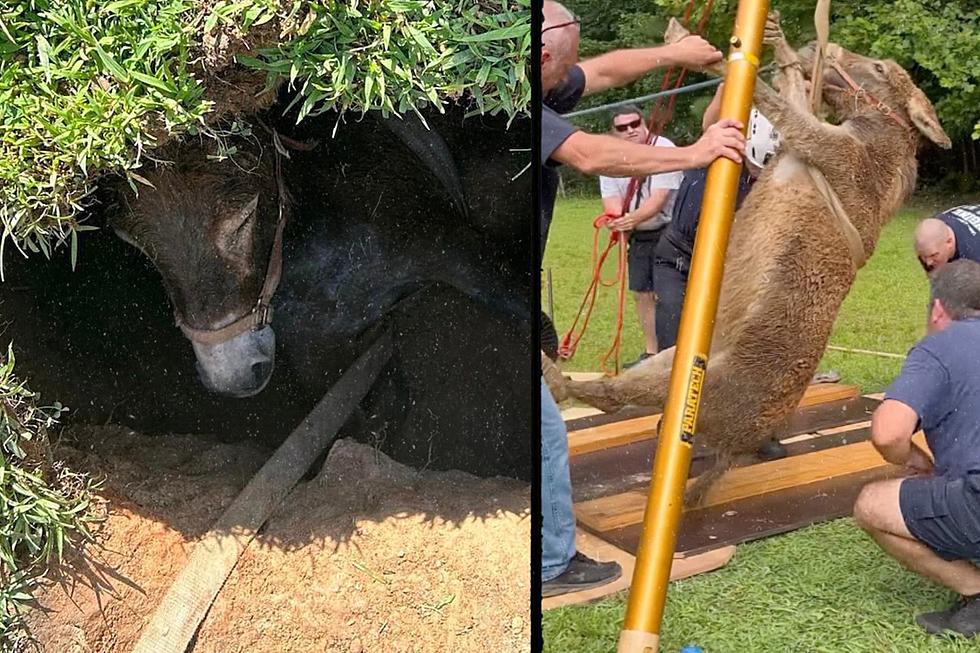
Donkey Miraculously Rescued After Plunge Into North Carolina Sink Hole
If you volunteer for your county's fire department, you probably do so with thoughts of battling a fiery blaze or maybe even retrieving a cat from a tree.
Rescuing a donkey who was swallowed by a sink hole probably isn't on the list of possible scenarios for a volunteer firefighter.
The Brassfield Fire Department is located in Franklinton, North Carolina and serves the southern portion of Granville County.
On Sunday, several members of the department were called to assist animal control to rescue a donkey named "Dora."
The donkey wasn't immediately visible when crews arrived at the scene. Instead, Dora had plunged into a dark sink hole that had opened in the field.
It quickly became clear that more assistance would be needed to extract the donkey from the hole.
Crews from the Wake Forest Fire Department and Raleigh Urban Search and Rescue arrived to assist with construction of a temporary platform around the opening of the sink hole.
According to the Raleigh Professional Fire Fighters Association, a specialty unit was called to the scene to assemble a "rigging system."
A rope was looped around Dora's body before she was thankfully lifted from the hole to safety.
According to a story from WRAL, the donkey appeared to be fine aside from "a couple scrapes."
The report stated that a veterinarian administered tranquilizers to Dora to help with the rescue.
Rose Hockaday of the Brassfield Volunteer Fire Department shared with WRAL that the entire rescue took around three hours to complete.
Hockaday credited recent heavy rains as a possible factor that led to the creation of the sinkhole.
"We always utilize mutual aid for house fires and car accidents, but this was definitely one for the books, Hockaday told WRAL.

